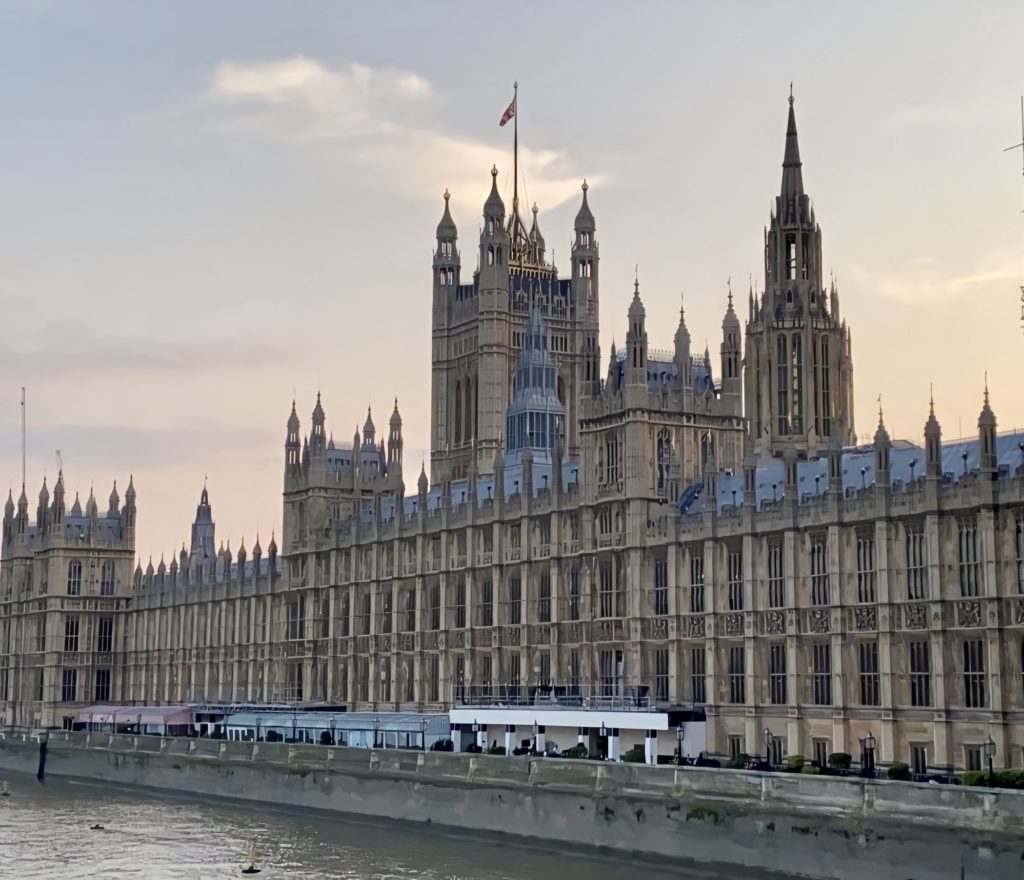
That the phrase ‘British democracy’ generates a staggering 188 million hits on Google is hardly surprising, for democracy ranks highly amongst the words most commonly used in conjunction with Britain. We have become so accustomed to its usage as a descriptor of our current political system, that the notion of an extremely democratic Britain is deeply registered within the national consciousness. As such, our political interests have become increasingly microcosmic, with a fixation on party politics and specific policy affairs.
It is high time that we pause, reflect on the so-called bigger picture, and reassess the British democratic system in its entirety by questioning the extent to which Britain is truly democratic. In doing so, we shall not only emerge as individuals with a more robust sense of political awareness, but also as ones who are better equipped to challenge such a system to better serve its public. Interestingly, an analysis of the political system of ancient Athens – the very birthplace of democracy – reveals that Britain is not nearly as democratic as we think it is.
Let us first establish that, although democracy is a term that is readily invoked in modern discourse, it is a word that many would struggle to adequately define. We often leap to adopt the language of politics without having a working knowledge of definitions and consequently fail to use such terminology effectively. Admittedly, the sheer variation amongst governmental democracies in the modern world inevitably convolutes the process of defining democracy.
Nevertheless, its most basic definition in the Oxford English Dictionary is ‘government by the people’. This mirrors the etymology of democracy, with its origins in the Greek portmanteau word ‘demokratia’ which translates to ‘people power’. In both the classical and modern sense, democracy is a system designed to place people – the ordinary masses who make up the citizen body of a given jurisdiction – at the centre of its governance.
It is upon this pivotal ‘people’ factor that the most fundamental distinction between the political systems of ancient Athens and modern Britain can be drawn. Athens was a direct democracy in which the ‘demos’ (the ordinary poor citizens) wielded political power and ruled on a day to day basis. This could not be more disparate from the indirect democracy of Britain, which affords the general public a significantly circumscribed role in politics.
We often leap to adopt the language of politics without having a working knowledge of definitions.
We, the people, are unable to engage in daily political operations, but are merely empowered insofar as we elect officials to rule for (or on behalf) of us. The most explicit indication of the politically passive citizen body of Britain is its characteristic voter apathy: on average a third of Britons – known as the ‘The Unheard Third’ – do not vote in national elections. In fact, the bulk of the British populace are so detached from everyday political life, that the ancient Athenians would not describe Britain as a democracy at all, but rather an elective oligarchy. This is certainly compelling because, although Britain is nominally classified as a democracy, this manifests itself weakly in reality, with everyday practical operations being reserved for an elected minority.
A crucial reason for the starkly diverging levels of citizen participation in the two political entities is that whereas the ancient Athenians considered all citizens to possess the aptitude for intimate political engagement, modern British society dictates that political competence is a ‘skill’ in which one must be qualified. Yet by handing out our politics to those whom we regard as politically proficient, we find ourselves forced to contend with the consequence of being incredibly distanced from the technicalities of central politics.
What is rather bizarre at best and particularly concerning at worst is that the very people to whom we resign our politics and expect to promote our interests, do not – generally speaking – actually represent us. Although privileged, middle to upper-class males are massively overrepresented in political life (rendering them the archetypal political participants), they simply do not reflect the lived experiences of the vast majority of the nation.
It would be absurd to suggest that our traditionally Eton and Oxbridge educated Prime Ministers, or affluent MPs, are genuinely representative of the average British citizen. Therefore, when the matter is considered in this framework it appears that Athens was remarkably more democratic than Britain, for it was the ordinary citizens themselves who were working on the frontlines of politics, personally shaping the policies that governed their city, and being submerged in the depths of political life.
Equally as impressive as its high levels of citizen involvement in politics, Athens boasted an elective system that was far more egalitarian than that of modern Britain. The ‘lot’ was a random selection process that maximised the fair distribution of power. This was coupled with a system of annual office turnover to prevent the accumulation of authority into singular hands. The elective system currently employed in Britain misleadingly provides the semblance of equality. British elections are inherently biased, however, because they favour people from certain backgrounds; wealth, high status and fame are all factors that strongly influence both the potential for candidacy and election results.
An especially pertinent point is that the Athenian political system was easily accessible to its citizens because it was not institutionalised – there were no political parties or an actual government. Even the ‘dikasteria’ or lawcourts were not considered to be independent bodies, but rather part of the wider political process. The British political system deviates significantly in this respect, for it is composed of several separate structures: an executive government, a parliament and a judiciary. This system naturally inhibits citizen involvement in daily political life because it causes politics to be segmented into individual establishments that are difficult for ordinary citizens to penetrate.
Evidently, the Athenians enjoyed a people-oriented democracy with an extremely active citizen body, whereas in Britain there is no such locus of political power within the people, but rather this power is divided across a series of institutions that are challenging to infiltrate.
I am by no means suggesting that Athenian politics was some utopian democratic ideal that we should seek to emulate in its entirety, for the very same system that professed to be predicated on democratic principles, was also one that had stringent conditions for political involvement. To be eligible for political participation, one had to be adult, male, free, and an Athenian citizen. By default, women, children, foreigners and slaves were viciously barred from political life.
Nevertheless, it is very easy to fall into the trap of ruthlessly criticising Athens on this basis and deeming it thoroughly undemocratic. To do so would be to misunderstand the classical world, however. All abhorrence aside, one must understand that in the classical world there was absolutely no conception of human rights; in fact, the concept that an individual should be entitled to exercise political (or any other) rights simply by virtue of their birth, is a strikingly modern phenomenon.
It is also worth noting that although the Athenian political system did exclude, it simultaneously constituted the most direct and radical form of political citizen participation that has ever existed. Even so, there is no doubt that the field of modern British political rights is one from which our ancient Athenian predecessors could have learned a great deal.
The democratic system itself was created to amplify the voices of those who are at its very heart, and that is us, the people.
It is also vital to not mistakenly assume that democracy has always been the widely championed and much-loved political system that it is today. Many would be surprised to learn that criticism of democracy was prevalent in the ancient world.
The two major proponents of the intellectual argument against democracy were right (wing) thinkers, Plato and Aristotle. Plato was a radical anti-democrat who never forgave the demos for the murder of his mentor Socrates, who was executed on charges of ‘creating new gods and corrupting the youth’. In his famous ‘Republic’, he fashions a polity that is the very antithesis of democracy and is ruled by philosopher kings who subscribe to Platonic philosophy.
Whilst Plato criticised democracy on the grounds that it was an anarchic system, in the eighteenth-century Aristotle claimed that it undermined the rule of law. For instance, this meant that if the people decided that an individual should be executed, they would be and no law against capital punishment could prevent that (as famously exemplified in the aforementioned case of Socrates). There were admittedly instances of wrongful executions made in Athens, with this being an unfortunate consequence of the direct, people-powered nature of its democracy.
While we must identify this shortcoming of the Athenian political system, however, the attempts by ancient critics to demonise Athenian democracy as a form of ‘mob rule’ or ‘tyranny of the poor over the rich’ remains uncompelling. This is because it is the product of class antagonism harboured by the elites who favoured benign oligarchy and perceived democracy as the worst ruling their betters.
Our political system does not exist in a vacuum but is part of a broader historical narrative that traces the evolution of democracy.
In light of this analysis of the ancient Athenian political system, it is clear that the pervasive, deeply ingrained notion that Britain is outstandingly democratic is a highly deceptive one. I am by no means ludicrously suggesting that Britain is entirely undemocratic, for even the simplest assessment of the current political landscape of the world (particularly in the context of oppressive political regimes), would demonstrate that Britain is undeniably democratic.
The question that I have been posing has never been whether Britain is democratic at all, but rather how democratic it is. Modern British society has become far too complacent in the sense that it takes British democracy at face value and is over-absorbed in the minutiae of politics. It is in this vein that I advocate for greater historical political awareness; ultimately, our political system does not exist in a vacuum but is part of a broader historical narrative that traces the evolution of democracy.
It is only when we return to the roots of democracy and reflect on its true meaning – in other words compare Britain to the ‘first known democracy in the world’ – that we obtain a realistic insight into the extent to which Britain is democratic. Athenian democracy was by no means perfect, but it was a system that was radically democratic for its time and empowered its citizens in an exemplary manner, so much so that it causes our modern day British democracy to appear not quite so democratic after all.
It is my hope that we may utilise this awareness to drive for useful political progress by continuously challenging our perceptions of the British political system, persistently questioning whether we are content with how it serves us as the public, and vigorously holding our elected leaders to account. After all, the democratic system itself was created to amplify the voices of those who are at its very heart, and that is us, the people.
